Home Brewing Alone Together
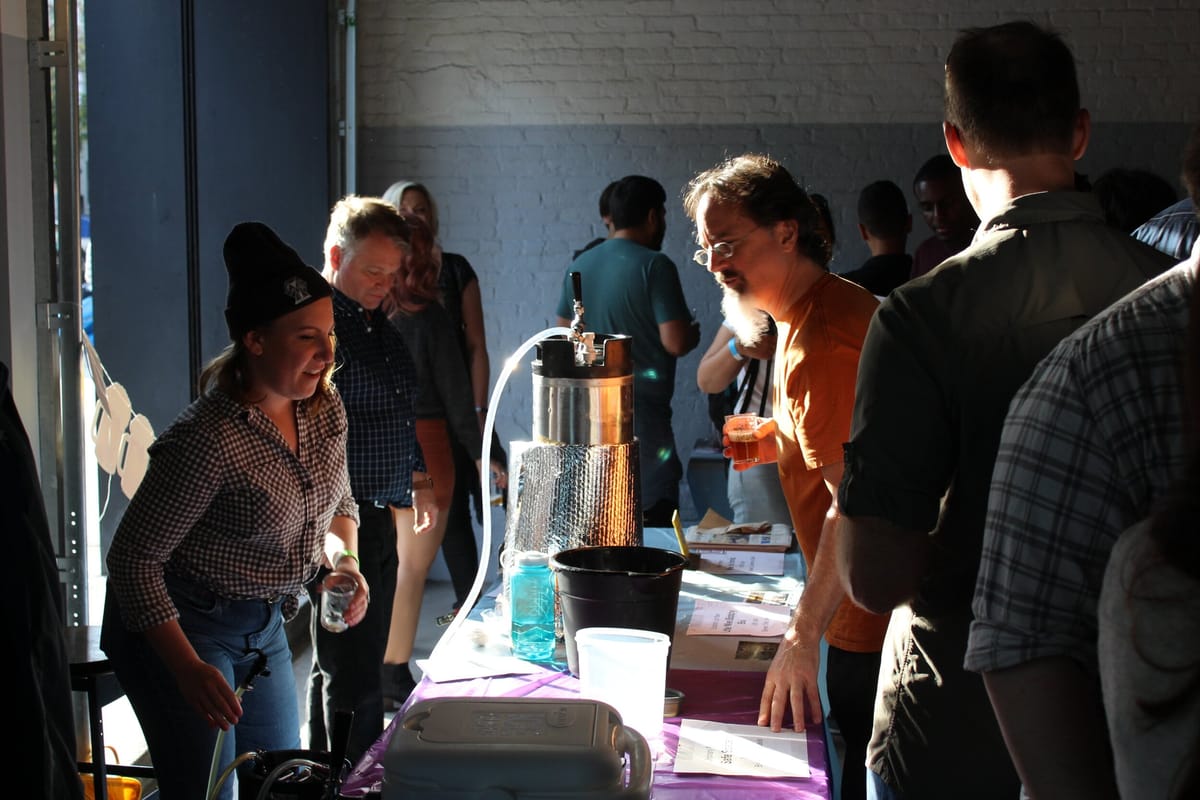
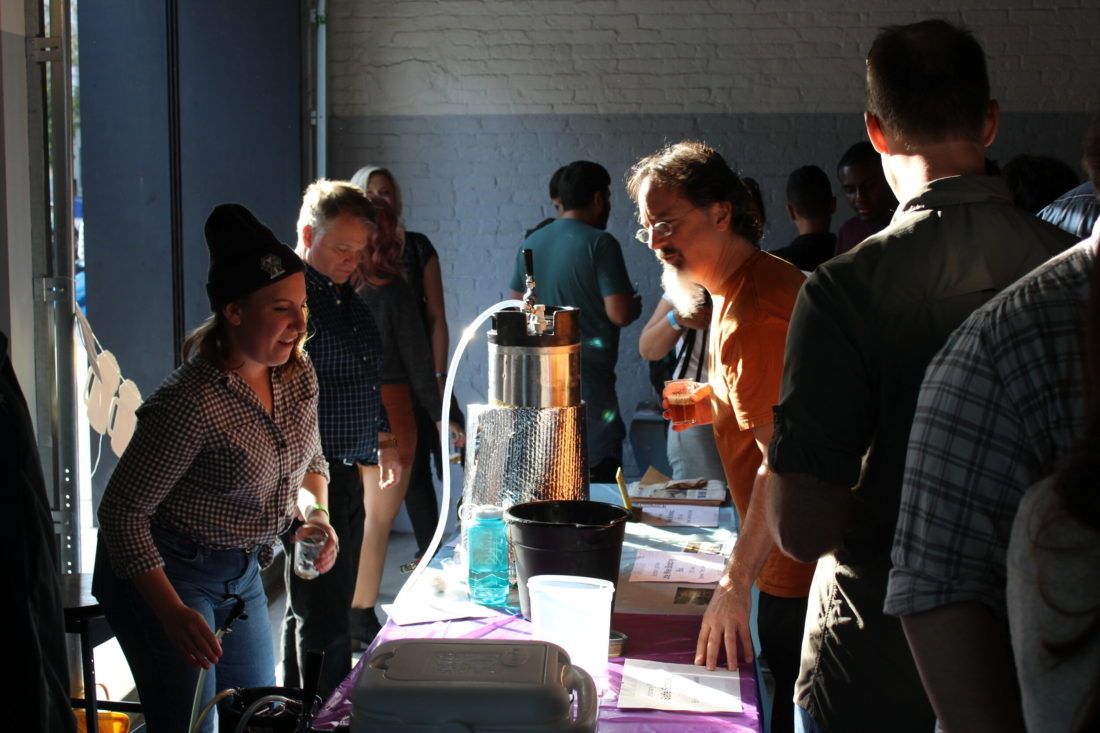
My brother Dan spends a total of $3 to make a gallon of his quarantine hooch, which he lovingly brands as his “swill.” “All you need to do,” he explained to me, “is buy a jug of juice, a packet of yeast, and pop a condom on top of that puppy, so your bottle doesn’t explode.”
It tastes better than it sounds—almost like a fusion of honey wine and White Claw. For best results, Dan recommends using non-lubricated condoms and juices with no added preservatives or sugars. So far, he’s experimented with cran-raspberry, mango, and honeydew mint flavors. The weirder, the better.
“During this time, it’s cool to be self-sufficient,” he said. “Maybe I enjoy it for the same reason people enjoy having a garden.”
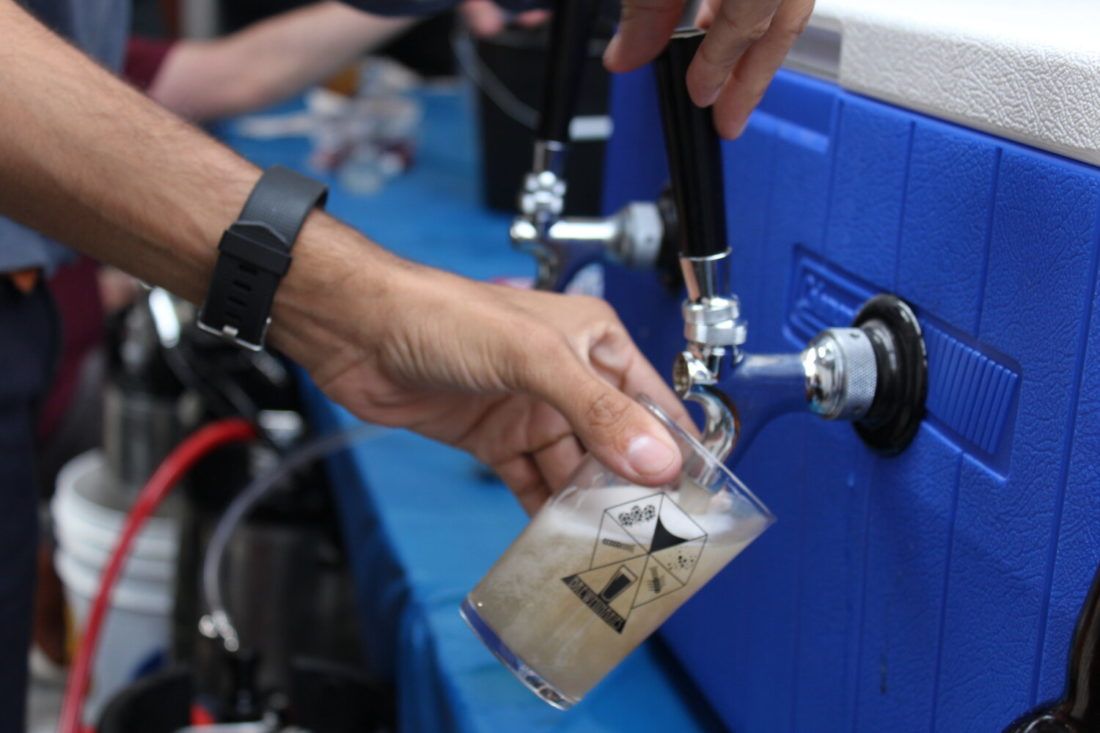
Culinary self-sufficiency has surged during COVID. In the early weeks of the pandemic, garden centers across New York and the U.S. sold out of seeds, harkening back to WWII-era victory gardens when urban dwellers grew tomatoes and zucchini on fire escapes and front lawns. And six months into the pandemic, it’s still hard to find sourdough yeast at grocery stores. So it was only a matter of time until the home-brewing boom arrived in Brooklyn. At a time in the world, when everything feels out of control, there’s comfort in making food—and drink—from scratch.
Dan put it this way: “A large part of my future and everyone else’s hinges on forces outside my range of influence, but at least with brewing my own swill I can create something fun, predictable, slightly countercultural, and aesthetically amusing at a time that is anything but.”
There are tamer, slightly more expensive alternatives for those less drawn to the scrappy, safe-sex aesthetic of Dan’s quarantine swill. John LaPolla co-owns Bitter & Esters, the only homebrew shop in New York City. At the Crown Heights shop, you can buy a one-gallon beer or wine-making kit for $35. LaPolla co-founded his homebrew supply store back in 2011, but COVID-19 has ushered in a rush of new customers. The interest in home brewing has always been there, he explained to Bklyner, but now people have the time, too.
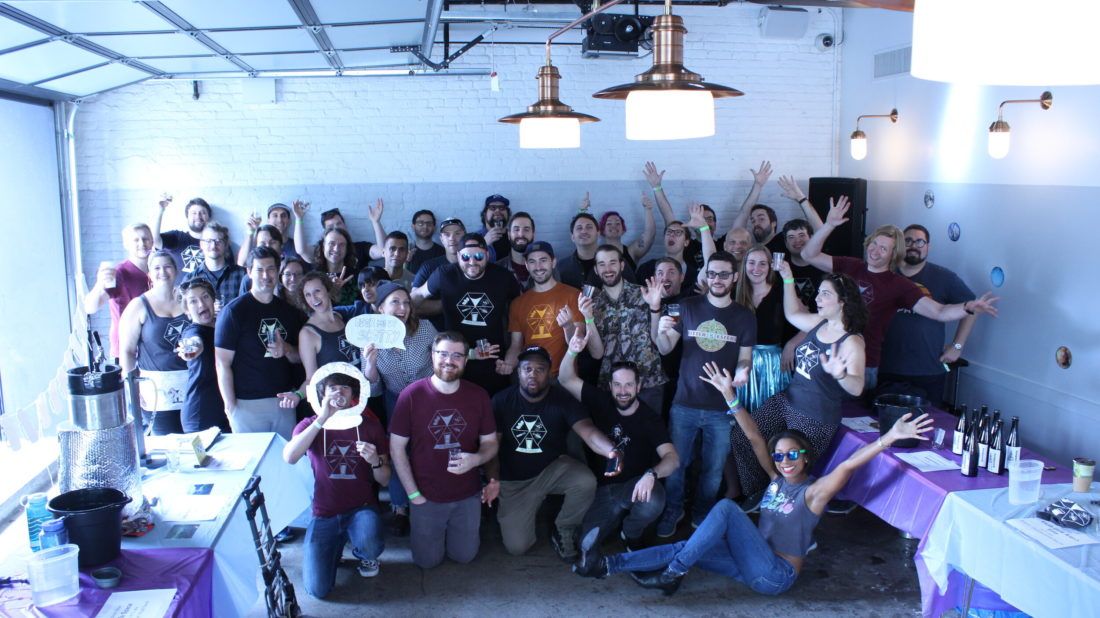
They also have plenty of reasons to drink. During the pandemic, total alcohol sales outside of bars and restaurants have risen nearly 25 %, a spike that was only possible thanks to the local government’s decision to deem liquor stores “essential” businesses. Bitter & Esters has remained open during the entirety of the pandemic, re-vamping their online ordering system and initiating curbside pickup. During the first week of stay-at-home orders, Bitter & Esters’ revenue tripled.
Their home-brew kits come with recipes and everything you need to get brewing, include a twin bubble airlock, siphon hose, and floating thermometer. While the equipment can sound intimidating, LaPolla assured me that the brewing process is safe and easier than it sounds. “You can get booze easily,” he said. “I like to think that there’s a higher power that wants us drunk.”
LaPolla wants to demystify the beer-making process, allowing people to make beer with as much ease as they make bread.
“We used to be so far removed from how beer was made,” he said. “Like I had no idea. If you gave me a can of beer, I knew it was a fizzy drink with alcohol in it.”
Dan agrees with LaPolla that there’s value in being a part of the creation process. “The way that society is built, we’re so disconnected from the means of production, and in my opinion, the means of production should be owned by the people,” he said. “A weird way to take some tiny, minuscule part of that—and feel grounded—is to do things yourself.”
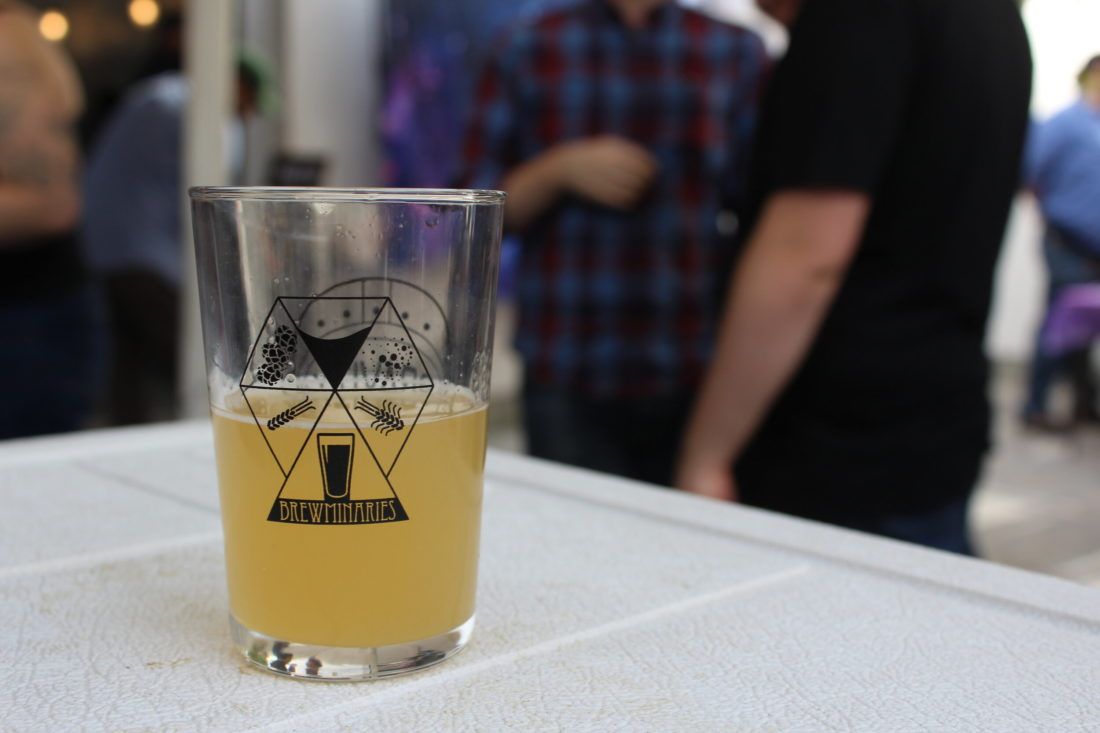
In Brooklyn, brewing also has a communal aspect. Theresa Ten Eyck is the president of the Brewminaries, the largest of the city’s eight home-brewing communities. Her now-husband proposed to her in Bitter & Esters by customizing a bag of hops with a “Will You Marry Me” label.
Many members of the Brewminaries consider LaPolla and his business partner Douglas Amport to be their “beer dads,” in part because the group grew out of Bitter & Esters’ monthly bottle swap. The way Ten Eyck described it, the Brewminaries sounds one-part social club, one-part culinary science experiment. Before the pandemic hit Brooklyn, the group would all brew the same beer, but each member would change a single ingredient to help find the perfect recipe.
“But we really had to pivot,” Ten Eyck said. “Our whole process was the complete opposite of social distancing: You’re sharing beers with people. You’re pouring your same bottle into several different glasses. You’re smushed together in the back of a small taproom.”
Presently, the Brewminaries are limited to socially distant bottle swaps and Zoom meetups. They hope to be able to resume in-person gatherings in the coming months, but in the meantime, they’ll go on drinking alone together.



